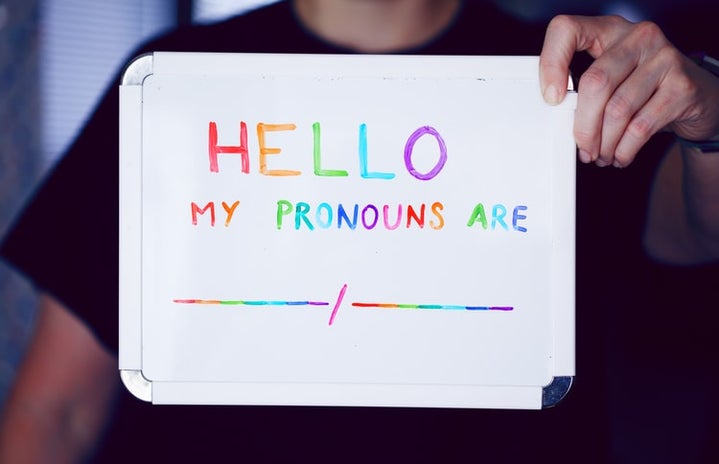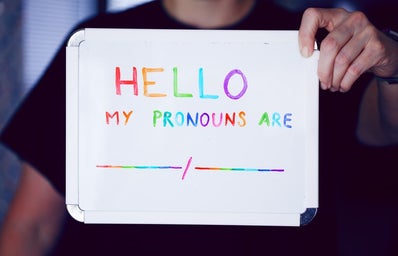For a lot of people the concept of preferred names and pronouns are new. Some people don’t even know what they mean. For example, recently my father asked me why someone had she/her in their email signature.
A preferred name refers to what someone wants to be called that is not their legal name. Someone’s legal name is the name that shows up on a roster or a birth certificate. Sometimes people have their names legally changed but for some people this isn’t feasible. Someone who uses a name that is different then what you see it as legally will often inform you of their preferred name. If someone tells you what they would like to be, it is important and respectful to refer to them by that name. It is important that you don’t misname them by calling them something they don’t want to be called.
In the LGBTQ community many people who are transgender, non-binary, gender queer, or gender fluid go by names that are not their legal names. They often do not feel comfortable with their legal names and feel that those names don’t represent who they really are. That is often why they choose to go by another name that better represents who they are. Their legal name is what they refer to as their dead name, and in the LGBTQ community being deadnamed is the worst feeling ever.
People who go by a preferred name often also go by preferred pronouns. Pronouns consist of she, her, he, him, they, and them. The pronouns I listed are the most common, but there are many others that are not as widely used. It is important to be aware of all varieties of pronouns. Pronouns can also be used with any combination of them.
For people who are cisgender (whose gender identity matches the sex they were assigned at birth; not transgender or gender queer), pronouns are fairly easy to identify based on their apperance. But for people who are not cisgender you often cannot tell what their pronouns are just by looking at them. That is why you should ask someone their pronouns if they have either told you they have a preferred name or have come out as transgender, non-binary, genderfluid, or gender queer.
If someone tells you their preferred pronouns, using them shows that you respect who they are and what they identify as. It is a good feeling when people actually use the pronouns you tell them you prefer.
For all of this you can just get in the habit of asking people when you meet them. When you introduce yourself, say your name and pronouns and hope that they will introduce themselves with theirs too. Never assume someone’s gender expression, name, and pronouns. If you are unsure just ask. Someone would rather you ask than make an assumption and get it wrong.


